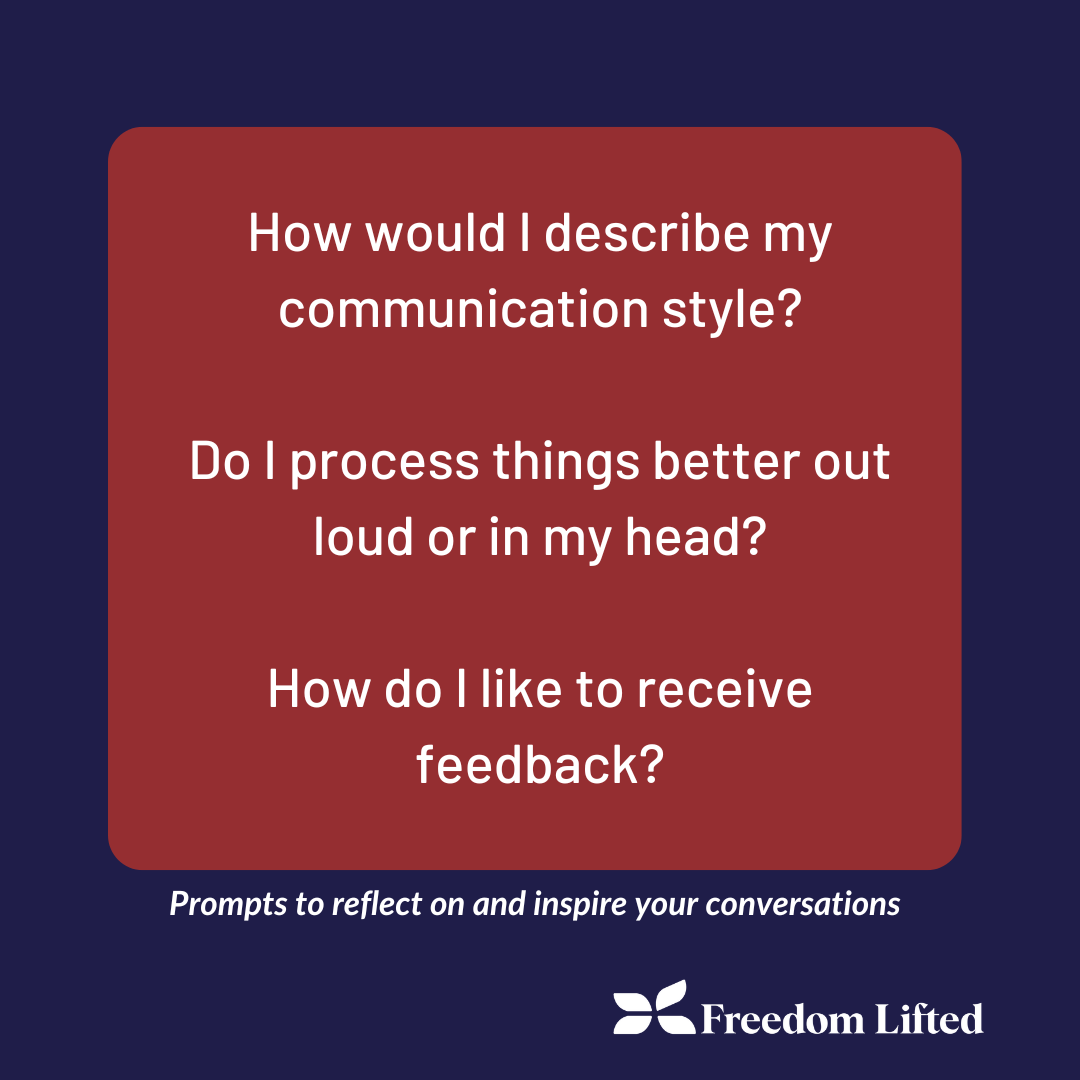Conversation 4: Uncovering Communication Styles
Welcome back to 8 Conversations for Shared Leadership. This time, we’re getting into how we need to communicate about how we communicate.
What’s your communication style?
I really like calendar and project management systems. I don’t do well with multiple back-and-forth emails to settle a single due date or organize work for a project. Calendly and Asana are two of my best friends.
I also don’t like to let conflict fester…
If I sense there’s disagreement or discord, I encourage people and groups I work with to share as soon as possible. This doesn’t always work for everyone. I have certainly been responsible for rushing conversations that needed more time for preparation—so being more measured about timing and approach is something I’ve been working on.
Communication styles and preferences can change, so it’s always helpful to check in about these things periodically.
In order to share power, we need to understand our own communication styles and those of the people we work with. How do we share ideas, request support, give feedback, and raise issues? How do our co-leaders do the same?
Knowing what works and doesn’t work for ourselves and our team members means that we can feel freer to be ourselves on a daily basis (and we’re less likely to take miscommunications personally).
Prompts for Conversation #4
You can use these prompts to inspire and expand your conversations within your team environment:
How would I describe my communication style?
Do I process things better out loud or in my head?
How do I like to receive feedback?
I suggest we ask these questions first of ourselves and then share our responses with our co-leaders.
Listen to my conversation with Mariame Kaba about social media’s vital role in organizing and how it relates to effective communication in movements.
Up next is Conversation 5: Making Decisions.
You can download the infographic of the 8 essential conversations to share with co-leaders.
Be sure to listen to season one of our Shared Power Podcast to learn more about the conversations, why I believe they are key to advancing justice, and ways to apply them to our work and movements.
Learn more about Mia’s facilitation offerings based on the eight conversations.


